'I'm sorry, I'm going to have to cancel. Again.'
Getting comfortable with cancelling and learning how to smooth out the boom and bust fatigue crashes

I stand with White Wells behind me, Ilkley lost in a dense white fog. A white blanket where rooftops, Yorkshire stone houses and drystone walls lie.
Dense, white fog like fatigue has been a presence in my life since 2012 to varying degrees. From being house and bed bound to the normal-ish life I lead now. Normal-ish meaning two or three crashes a year, usually triggered by an innocuous virus or boring cold possibly exacerbated by not listening to my body closely enough.
I hate talking about it though and prefer to wave it away because I feel a fraud pulling out the ‘fatigue’ card. I look and sound normal. I’m out and about, it’s quite easy to hide away, disappear for a short while if I need to. I’m not housebound or bed bound, in pain, unable to navigate a day without going to bed part of the way through as has been the case in the past.
This latest crash feels like it’s lingered a little longer than others though, hit a little harder. I’m out of breath after getting out of bed and going to the toilet in the morning. I need a little sit on the side of the bed before attempting to climb the stairs to the kitchen and making tea. My legs unusually heavy, ankle joints unusually stiff when moving from sitting to standing. Rests and pauses punctuate activity and I remember the Spoons theory and activity tracker I used to fill in.
The memory white outs and an overwhelming feeling of being untethered have been particularly noticeable this time, and that’s been difficult to navigate.
It's maybe worth saying that I’m not currently under any formal diagnosis or treatment for ME, fibromyalgia or chronic fatigue. I stopped seeing the doctor about chronic fatigue a long time ago, probably around the time we moved here in 2017, the 2018 breast cancer diagnosis taking priority.
I have in the past though. ME/fibromyalgia my diagnosis after I contracted Epstein-Barr virus in late 2012, at least that’s what the blood tests told us. There’ve been plenty of GP appointments since then. A referral to the Bath’s Mineral hospital and attendance at its support groups. I’ve had CT & MRI scans, appointments with consultants. I’ve also had breast cancer and stopped taking tamoxifen a year ago.
And it’s February.
We’re all craving blue sky and sun, needing more than February teasing us with its occasional shows of sun and blue sky.
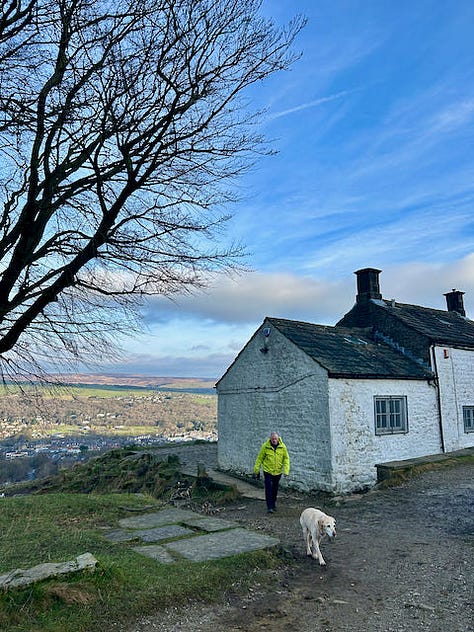
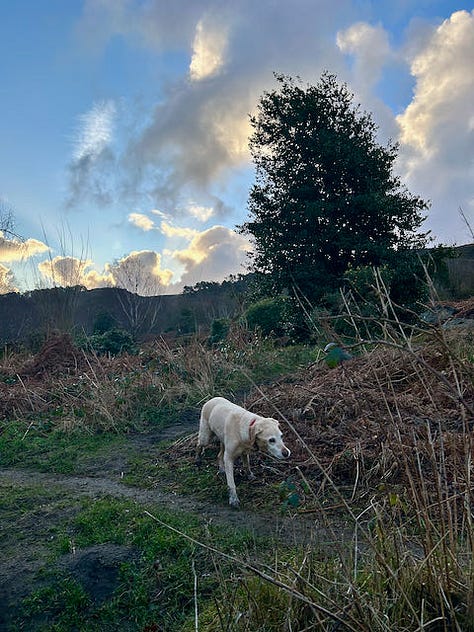
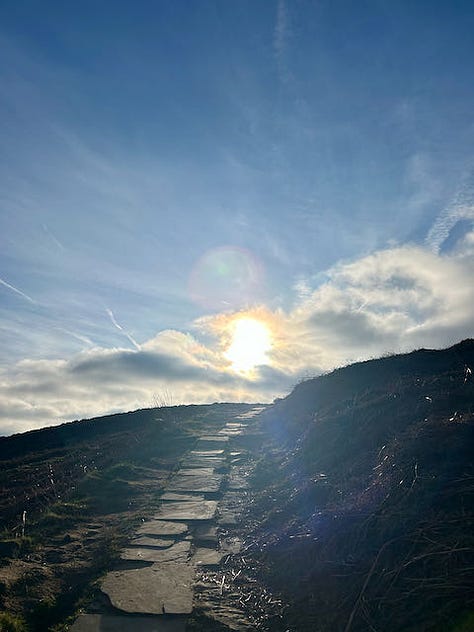
All of the above are likely to be playing their part in these crashes, but in the midst of one I’ll spend more time leaning into what my body and brain need. I’ll dust off the kitbag developed over the years, focusing on getting back to normal, rather than over-analysing the causes, although I’ll usually have a good idea.
Negative and unhelpful thinking, spending overly long working out if I have enough energy to do x,y or z or even watching an upsetting or emotional TV programme will drain energy stores far quicker than any slow lap round the tarn.
I try to find that sweet spot of being engaged enough with what I need to be engaged with and letting the rest go. Easier said than done in this noisy, chaotic, scary world and when it’s not unusual for the phone to ping with each child needing, wanting conversations at the same time. Conversations I love and will answer even if I have to apologise and call it short.
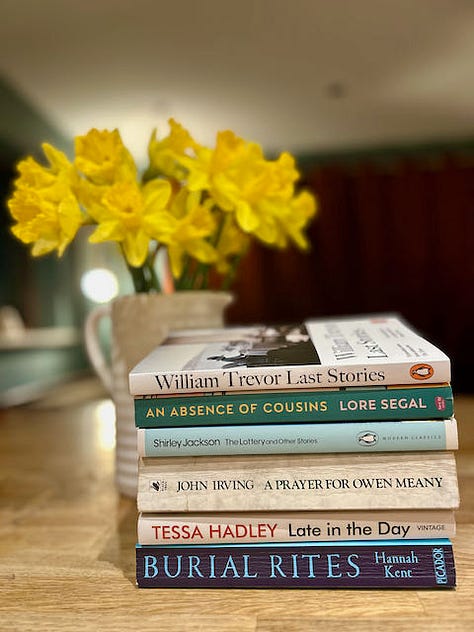
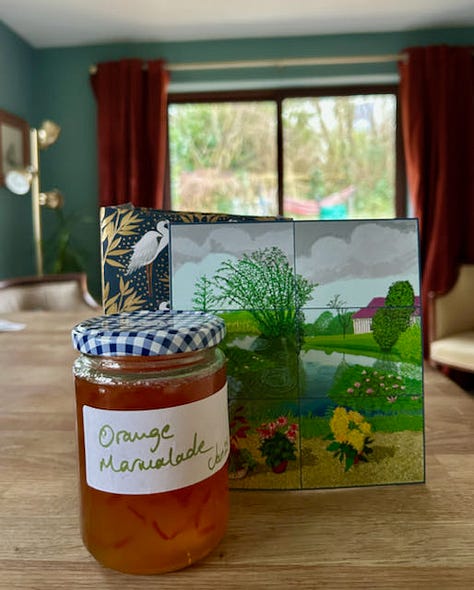

I set up camp in the corner of our corner sofa and root myself in books and TV. Glasses, remote control, book and a cup of tea all to hand. Hunker down, dig out the spoon theory as my body slows, my brain a cassette tape chewing up its tape.
I quickly weigh up the pros of going into work versus calling in sick. I don’t look ill I think plus I love it on the shop floor.
I figure it’ll give me a lift, maybe the gentle energy boost of those conversations will jump start my return to normality. I balance that with the challenge of the mental gymnastics involved in chatting to a revolving door of customers and a suddenly weak muscle memory. Standing behind the till I will myself to override my rising panic as buttons and beeps and letters and words float in front of me, refusing to make sense while a customer waits patiently to tap their card and pay.
I’m annoyed that I feel overwhelmed walking into the store, and then I’m annoyed that I’m feeling annoyed. The bright lights, colours and textures I usually love feeling too much. ‘I’m fine’ I say, explaining that I’m not fine but that I’m ok and no, thanks but I don’t need a seat on the shop floor to rest. While I’m there, I want to be normal but my brain is screaming at me to walk out. I blink tears away.
I scuttle home exhausted afterwards, collapsing on the sofa, a cup of tea waiting. I help with dinner, finding it sometimes soothing to follow a recipe, other times my brain can’t process the instructions. Co-ordinating timings, oven temperatures, finding ingredients.
I hear author Tessa Hadley use the word ‘adjacent’ in the context of an interview about her writing life. She talks about how she draws on her life experiences to give her writing depth. That she doesn’t write about herself personally in her stories but that she writes stories adjacent to her life and it resonates. It resonates in terms of the short story and fiction writing road I’m heading down, and in the way I’ve felt these past two or three weeks.

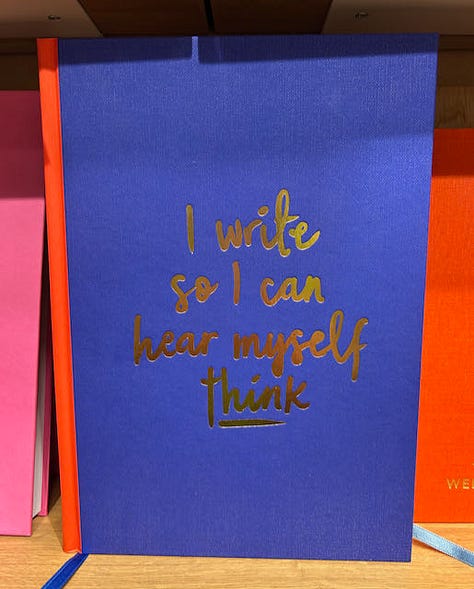
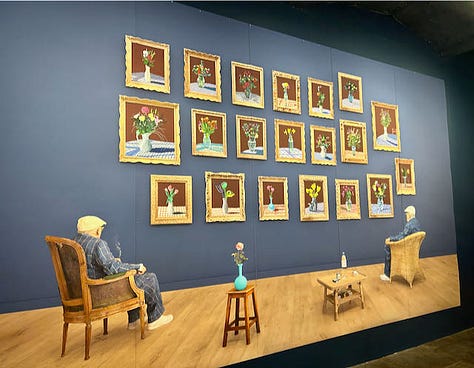
I feel adjacent to the world, separated from real life by a condensation covered glass window. If I wipe it, the world is outside. I can see it, I can feel it happening around me but I’m not in it.
I take myself on solo trips out of the house where I can control how fast or slow I walk, the conversations I have and don’t have. I’m adjacent to people and lean into their energy without having the pressure of having to engage in conversation much deeper than hello, thank you and excuse me.
There’s a lap of Leeds Corn Exchange and a pork banh mi in Kirkgate Market after a 30-minute train journey from Ilkley to Leeds while listening to The Bee Sting. Another day I walk into the ground floor of Salts Mill and inhale that familiar warm, musty smell, my ears open to the classical music playing and here I feel ok. I immerse myself in A Complete Unknown enveloped by the armchair and darkness of Ilkley cinema.
I use these tightly managed trips out of the home to stay connected with life, and to test my energy levels. I’m at ease with saying no to things, coffee and catch ups with friends.
I’m content to cancel but I also know that saying no too often can quickly become a default position allowing a widening disconnect with life that’s hard to come back from. When life closes down for too long self-doubt breeds and confidence crumbles.
I’m lucky though is what I think as I write this. I’m better at recognising the signs, swifter to take action, or rather swifter to stop. That there are gaps between crashes is significant given how I have been in the past. That there are fewer crashes, that the time between crashes has lengthened is all significant and should be celebrated.
I probably need to pay more attention to the triggers, but once a crash has passed it’s often easier to enjoy feeling ok and move forward.
Writing has been hit and miss these past few weeks but I have to remind myself that I have written. There was a Writers Hour with
last week where I filled page after page of scribbled words and sentences. Some making sense, others not. Random words and thoughts now on the page, freeing space up in my head.There was the Tessa Hadley interview I mentioned earlier, also with
. This, combined with a lunchtime Zoom workshop with Writing Room led by my short story writing friend Emily Devane opened up the path to the short story writing, a path I’m excited to explore.And I’ve written this. It’s taken a while, my brain has gone down multiple dead ends and cul-de-sacs and I’m not sure I’ve said what I wanted to say. There are probably mistakes and typos too, but it’s a start.
I also have a hunch that there’ll be a fair few of you reading who might recognise some of what I’ve described here. If you do, let me know in the comments and if you have any articles to read, programmes to watch or listen to that others might find helpful please share them.
Thank you as always for reading, Harriet
Information on ME and Chronic Fatigue
Reading, watching and listening
From the book pile in the photo above, I’ve loved and finished Hannah Kent’s Burial Rights and am currently enjoying John Irving’s A Prayer for Owen Meany
Steven Mangan and David Nicholls on Desert Island Discs were beautiful, gentle listens.
The Capture (Netflix by way of BBC) and Prime Target (Apple TV) great distraction TV.
Delving into the Letters Live archive on You Tube, especially this excellent letter challenging a speeding ticket read by Taiki Waititi giving belly and bittersweet laughs.




A beautiful piece of writing. It sums up perfectly what living a life with fatigue is like. I have ME, diagnosed after a bout of Glandular Fever in 2009. My life is just not the same as it was. Luckily, I was able to take a redundancy deal and, after a few tight years, able to bring my pension into payment. I never know which “me” is going to get up in the morning. Shattered plans, flop days and brain fog are all too common. Stay strong within you reality.